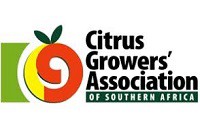 Every four years the Citrus Growers' Association recalculates the mandatory levy and, with the blessing of most of its 1,250 growers and 400 packhouses, an increase to the levy from 74c (0.04 euro) to R1,64 (0.086 euro) per 15kg export carton next year has been proposed.
Every four years the Citrus Growers' Association recalculates the mandatory levy and, with the blessing of most of its 1,250 growers and 400 packhouses, an increase to the levy from 74c (0.04 euro) to R1,64 (0.086 euro) per 15kg export carton next year has been proposed.
This represents a 120% increase to the levy, with the largest increases towards research and technological development as well as towards transformation. The levy is expected to bring in R1 billion (52.64 million euros) over the coming four years to an industry that is very busily exporting more than 140 million cartons this season, an expected 13% up over last year.
Two-thirds of the proposed levy for R&D
Research and technological development will, if the levy proposal is approved by the Minister of Agriculture, receive the bulk of the increase – rising from R55 million (2.8 million euro) to R150 million (7.89 million euros).
"There was mounting evidence that industry investment in research was insufficient to shield the industry from future challenges," says Justin Chadwick, CEO of the Citrus Growers' Association.
The higher levy is an investment in the industry's future competitiveness and sustainability which will, as the CGA well recognises, heavily hinge on its ability to become more economically and demographically inclusive.
For that reason the second largest item of expenditure remains industry transformation. Its share will increase from R15 million (790,000 euros) to R45 million (2.36 million euros).
A fifth of the levy to go towards industry transformation
More agile & aggressive market access approach needed
The third largest share of the levy (8 to 10%) goes towards market access research and negotiations. Market research provides the government with the technical information needed to negotiate wider market access in the USA, China and India, or new access to the Philippines and Vietnam, among others.
"A strong Private Public Partnership (PPP) as envisioned in the Master Plan process will mean that government and industry will work together on a more agile and aggressive approach to accessing markets."
The slow pace of present negotiations will not be enough to keep pace with the growth of the industry, he notes, but through an increased investment in technical research the industry can have the necessary technical work done to fast-track market access negotiations;
"The new levy is an investment in the industry for the next fifty years - ensuring that the industry addresses all its challenges, and grasps all the opportunities," he says.










